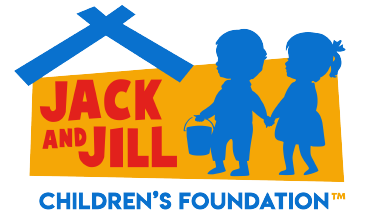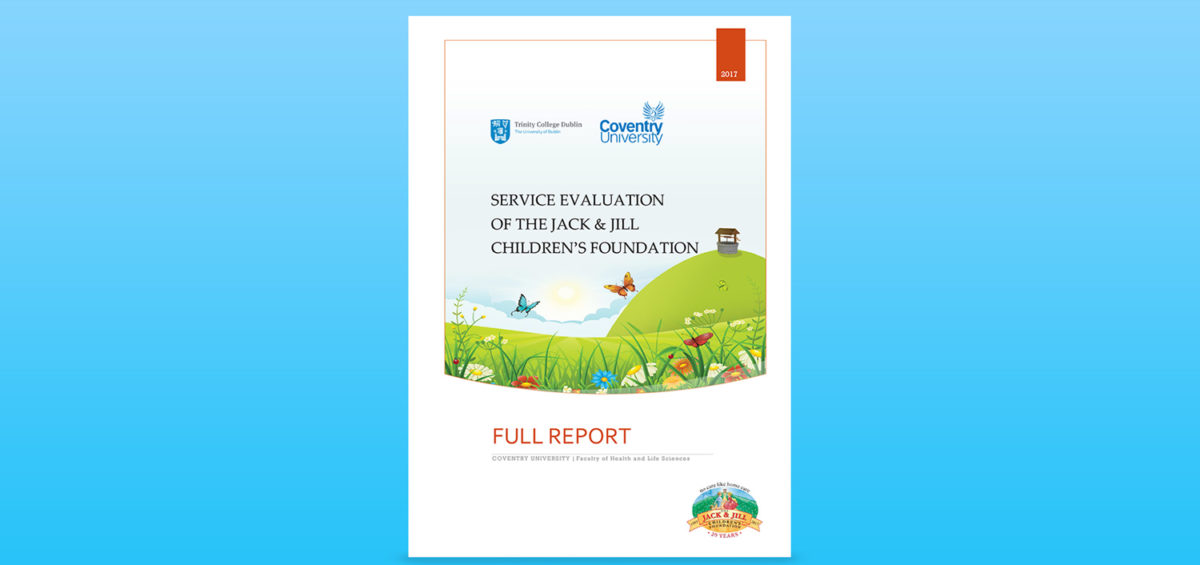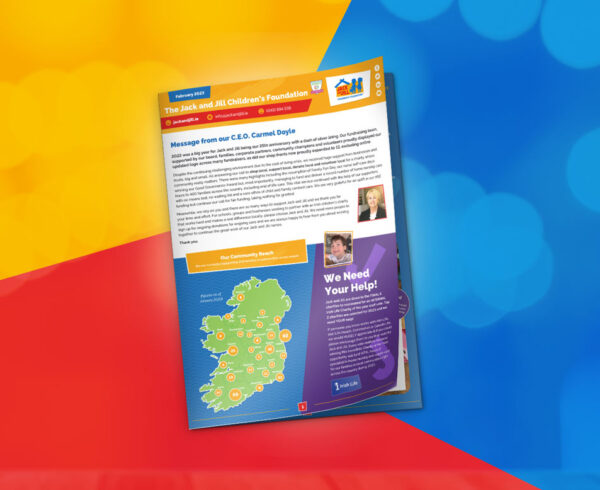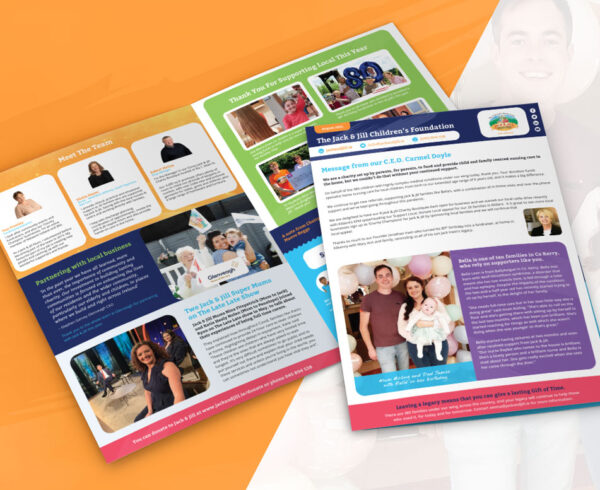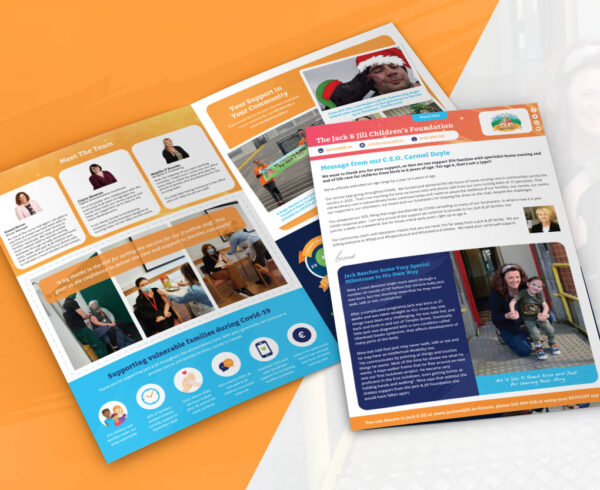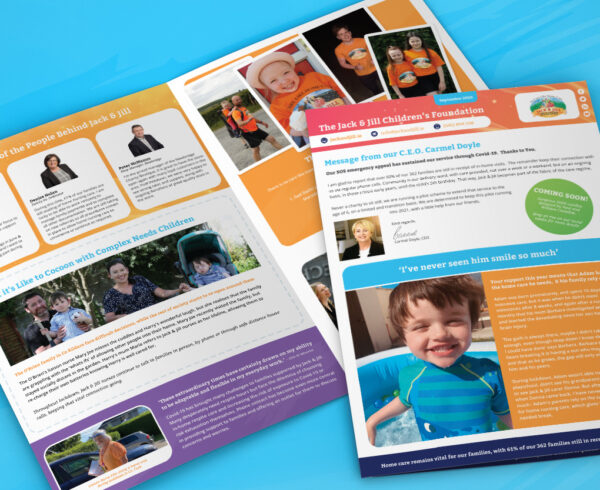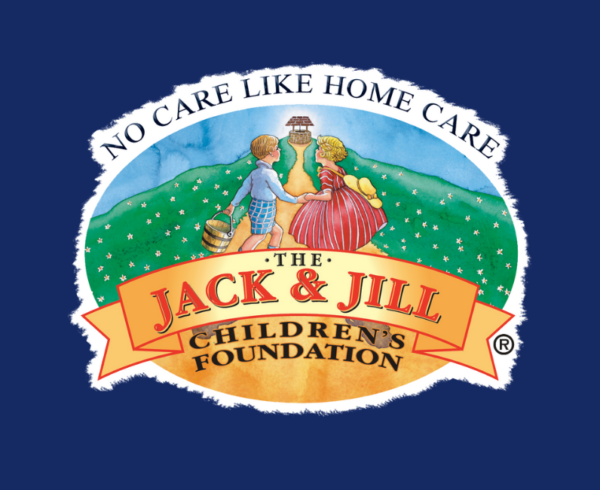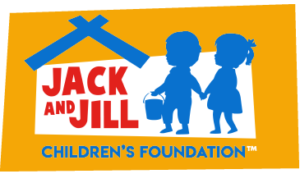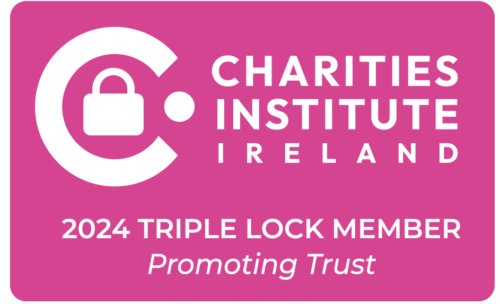Jack & Jill to extend its age limit for provision of home nursing care and respite to children up to 5 years old, based on recommendations of the service evaluation report published today by Coventry University and Trinity College
Nurses urge the HSE to abolish ‘loco parentis’ clause in homecare nursing contracts which makes virtual ‘prisoners’ of parents in their own home
On foot of recommendations from a service evaluation report from Coventry University and Trinity College launched today (Wednesday 15th November 2017) at the Royal College of Physicians of Ireland, the Jack & Jill Children’s Foundation is to extend the age range of children supported by the charity. This age extension, announced by Jack & Jill CEO Hugo Jellett, is effective immediately and broadens the charity service from supporting children from birth to 4 years of age, to supporting children from birth to 5 years of age.
“This extension is something we’ve wanted to do for a long time, and a pilot scheme last year enabled us to work through a trial phase. Our aim is to extend the service further to children up to the age of 6 years of age, as recommended by this report, in a staged programme of change by moving to the child’s 5th birthday from today, and then extending further to 6 years of age by 2020. We are able to do this, not due to the HSE who declined to participate in the funding of this extension, but because of donations from new investors from the private corporate sector who have recognised the exemplary Jack & Jill model of care, backed up by good governance and a trustworthy fundraising approach that shows where the money goes.” – Hugo Jellett, CEO of Jack & Jill
Hugo Jellett went on to contrast the flexible nature of the Jack & Jill care model which provides a real break for parents coping with the extraordinary demands of caring for a precious child with complex needs at home, with what he described as, “the restrictive nature of the HSE homecare day hours provided by agency nurses who, under contract, are forbidden to allow parents to leave the home unless another adult is present.” As an organisation advocating on behalf of families, the Jack & Jill Foundation is currently challenging the HSE to explain the rationale for the loco parentis rule, which, it says “is making virtual prisoners of parents in their own home.” Hugo Jellett contrasted this to the way in which the Jack & Jill model of care—as highlighted in this report—puts the family at the centre of the help it gives, and a bespoke package of care is developed around them. He said, “We give parents a gift of time to do the normal things they need to do during the day, like picking up their other children from school or simply go for a walk, or meeting a friend for a break.”
An audience of Jack & Jill families, nurses, supporters and political representatives, as well as the co-founders of the charity Jonathan Irwin and Mary Ann O’Brien, heard high praise from the report authors for the Jack & Jill model of care. Collette Clay of Coventry University described the homecare service provided by the Jack & Jill Foundation around the country as, “A unique and very flexible service, delivered 365 days a year with no waiting list; a true care service that is designed around the whole family’s dynamic, not just the sick child.” According to the report:
The Jack & Jill model of care should be used as an exemplar for other services
Key recommendations in the report, which is published on jackandjill.ie, include an extension of the age limit for Jack & Jill to 6 years of age; new ways of supporting parents through social media and support groups; government funding to provide 24-hour home nursing care for children who require end of life care; and access to more support and supervision for the wider nursing and carer team supporting families.
“What comes through loud and clear is the voice of the parent and the unique nature of the Jack & Jill care model which surrounds the whole family with a velvet glove of nursing. This Jack & Jill model, based on our own son Jack’s homecare plan, has changed little over 20 years. However, it is a model that has changed lives, making difficult care journeys for over 2,200 families a little easier and less lonely. We’ve always recognised the importance of parental wellbeing and we never ever forget about the siblings in the homecare model who can so often feel isolated and overwhelmed by having a sick brother or sister who takes up so much of Mummy and Daddy’s time. On this – Bereaved Children’s Awareness Week – we also want to remember and salute the 627 precious children who have passed away under our wing since 1997. On behalf of myself and Mary Ann I want to salute Coventry and Trinity College for such a comprehensive report that confirms what we already knew. This is a simple, effective, high quality service that works and what we fall short on is government funding.” – Jonathan Irwin, Founder of Jack & Jill
The duration for the work was 12 months from inception to final report, with data captured via questionnaires, focus groups and meetings in Cork, Dublin, Kildare, Limerick and Galway, involving 272 participants made up of parents, health and social care professionals and nurses. According to the report, “The role of the Specialist Liaison Nurse encompasses problem solving and liaising with hospitals, physicians, pharmacists, HSE, public health nurses, disability services, charities and suppliers. Their role incorporates assessing the home environment and establishing what resources are required and ensuring that the hands-on care is in place to support the child and family. They are seen as enablers and every caseload requires assessment and careful planning.” What is also evident through the report is the disparity between rural and urban locations and how geography determines the availability of specialist health services and skilled experienced staff.
Throughout the focus groups there was strong sense that the Specialist Liaison Nurse advocated for the child and families especially when navigating relationships with other health and social care professionals. The Jack & Jill Children’s Foundation has had a longstanding battle with the HSE regarding the sanction of medical cards for children with life limiting conditions requiring care at home. The Foundation has, through the voice of Jonathan Irwin and others, been instrumental in the changing landscape of the entitlement of medical cards for children receiving domiciliary care allowance. Medical cards are now automatically sanctioned to children in receipt of domiciliary care allowance.
